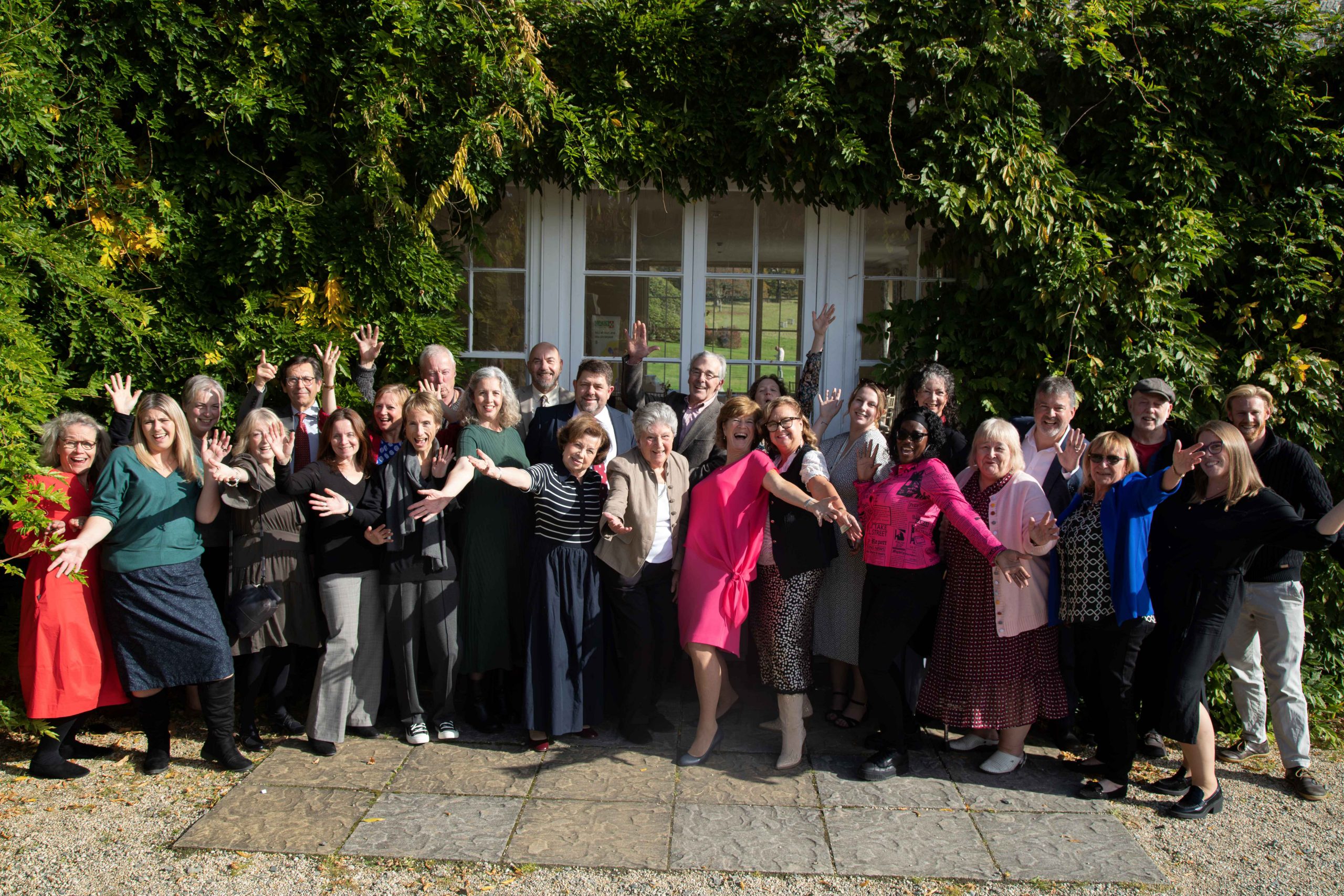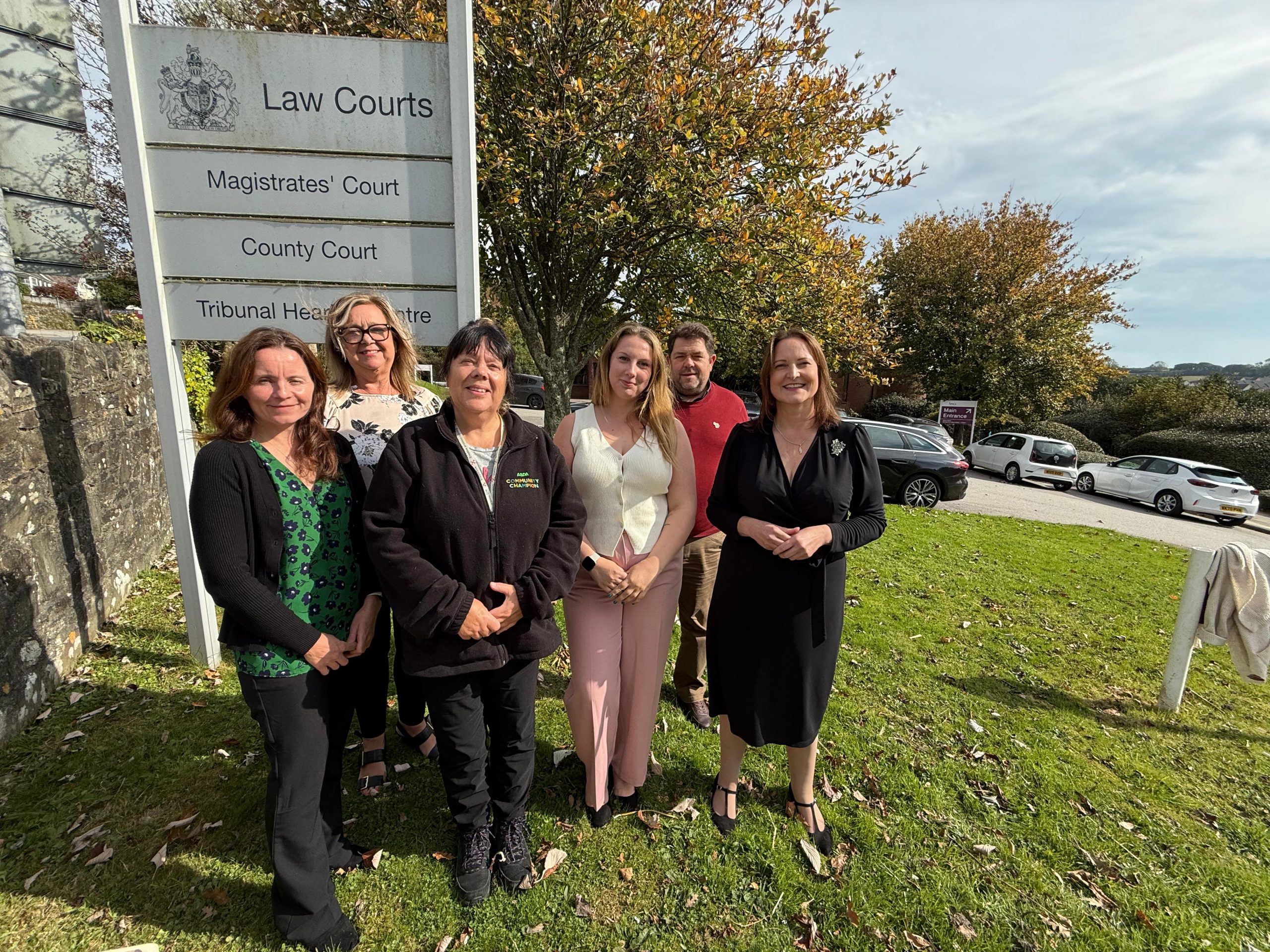The vital role the charity sector plays within the criminal justice system in supporting victims, rehabilitating offenders and preventing crimes from happening in the first instance should never be underestimated.
I was delighted to be recently invited by one such charity – Community Advice and Support Services (CASS+) – to visit its Bodmin office in Cornwall within The Law Courts as my office is one of its funders.
For those who may not be familiar with the successful work its staff and dedicated volunteers do, CASS+ provides free, confidential, practical help and emotional support for people going through the courts in Exeter, Newton Abbot, Plymouth, Bodmin or Truro.
This month it celebrated its 20th anniversary with a special gathering of employees, volunteers, supporters and past clients in Cornwall which is where the first hub opened in Bodmin in 2005.

The need for its support is apparent more than ever because it is important to remember that anyone, from any walk of life, can end up in court for a variety of reasons, not excuses but reasons. Issues such as untreated mental health, financial struggles, previous or recent trauma from being a victim of crime, addiction, homelessness, unemployment or isolation can all be key contributors behind someone committing a crime.
With prisons full and the reoffending system rate still high upon release, more needs to be done to get satisfactory justice for victims and better deal with people to stop committing crime.
Just one example shared with my team was of a man who was prosecuted for drink-driving. He confided to a CASS+ volunteer that three weeks before the offence, his father had died in his arms, and thanks to the charity he was able to get much needed bereavement care and support rather than his problems potentially escalating. So justice was served, but efforts to stop him doing it again were put in place.
We all rightly get upset or angry at people who commit crime, especially where a victim has suffered, but we need people who will work calmy with perpetrators and do their upmost to stop them returning to court. CASS+ is leading the way by stepping in and doing that on our behalf.
Its volunteers guide people through how they can make positive changes not just for themselves but also their loved ones and friends. The ripple effect is far reaching by making our communities safer and reducing the frustration of police officers rearresting the same person again for a similar offence.
Over the past 20 years, CASS+ has had the support of around 446 volunteers to help make this happen. Some of the volunteers started out as clients having been helped by the charity themselves.
Kelly, who is a volunteer in Plymouth, is a recovering addict who was once in and out of the criminal justice system due to her substance misuse.

At her lowest, she ended up living on the streets, could not see her children and had a criminal record. Help came along at a time when she described herself as having been “really upset and chaotic” – but in the right place to be helped.
Now back on her feet and doing well, Kelly is a proud volunteer and role model for CASS+ because she wants to help others knowing only too well how it feels to be in their shoes.
She described the opportunity as being “like a miracle” and said: “They did not look at my criminal record but at the person they saw in front of them today and gave me a chance, and a new lease of life.”
CASS+ volunteers assists people going through court by providing anything from reassurance in the courts to helping them with problems such as debt, housing and addictions through signposting to the right services.
I will continue to champion the work of CASS+ and all the other life-changing charities and organisations that we are so very lucky to have in Devon, Cornwall and the Isles of Scilly and remain committed to getting results that keep us safer.
For more information about CASS+, please visit https://www.cassplus.org

